a) If a gaff is fitted to a flag pole or mast for civilian or naval use ashore, it is generally (but not exclusively) that flag which is used as a naval/civil ensign (or a yacht ensign if appropriate) which is flown from its peak (see also civil ensign and yacht ensign under ensign)
b) (While underway) non-naval sailing vessels have the option of flying their ensigns for the peak of the gaff if fitted, or from two-thirds the way up the leech of the mainsail if Bermuda rigged (see peak and leech).
Please note that in the early-middle ages, standards were sometimes (for reasons which are now unclear) transported into battle and displayed whilst mounted on some form of wheeled conveyance.
2) The term was also used by 19th century French sources to describe Brazilian merchant ship pendants – see merchant ship pendant.

Galhardete/Merchant Ship Pendant of Pernambuco, Brazil
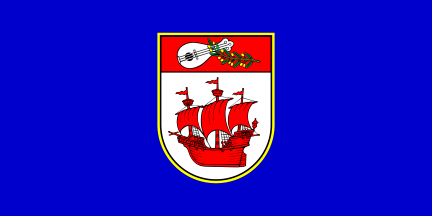
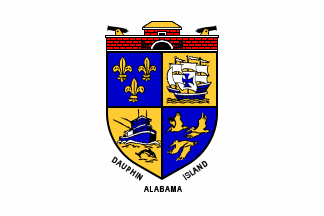
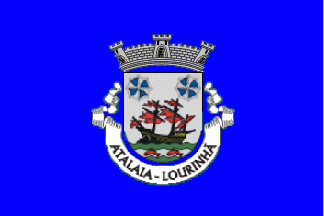
Flag of Dubrovačko, Croatia;
Flag of Dauphin Island, U.S.;
Flag of Atalaia, Portugal
2) Specifically the heraldic term for an oared warship with more than one mast – but see ancient ship.
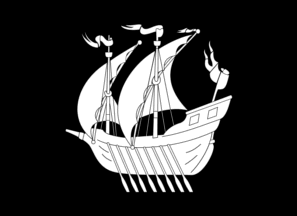
08-15.gif)
Flag and Arms of Kragerø, Norway
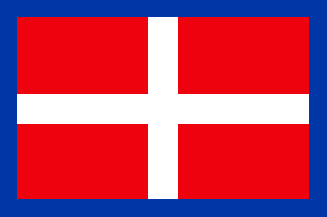
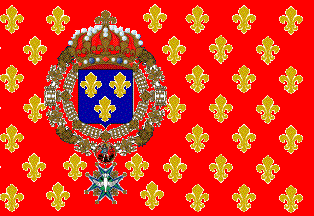
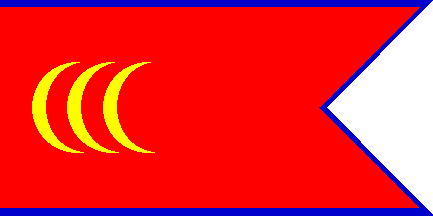
Flag of a Galley Captain, Sardinia 18th century;
Galley Ensign of France 18th century;
Ensign of The Commander of Galleys, Pre-Ottoman Tunis
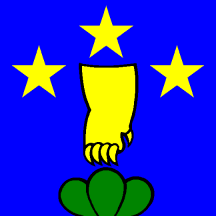
Flag of Villigen, Switzerland
Please note that if a sheaf is made up of any grain other than wheat this must be stated – e.g.,
a garbe of reeds as on the flag of Worben illustrated above.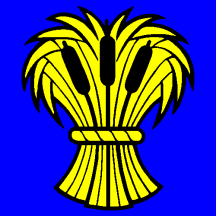
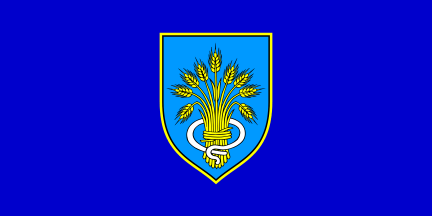
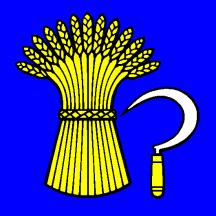
Flag of Worben, Switzerland;
Flag of Sopje, Croatia;
Flag of Freienwil, Switzerland

Gardamano/Handguard According to Spanish Regulations (Reglamento de Banderas Actualizado)
![[garland]](../images/v/vx-sl_roy.gif)
![[garland]](../images/v/vx-mpe)hc48.gif)
![[garland]](../images/v/vx-br-pr02.gif)
Royal Standard 1961–1971, Sierra Leone;
High Commissioner’s Badge, Palestine 1948;
Flag of Parana, Brazil
Please note with regard to 1), that the English heraldic requirement of only four flowers per garland is not generally observed in flags.
![[garland]](../images/v/vx-garland.gif)
Garland in Heraldry, according to English Heraldic Practice (Parker)
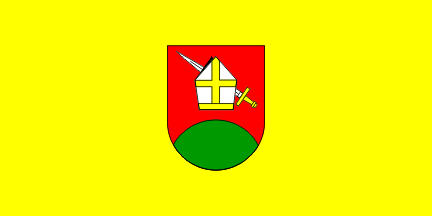
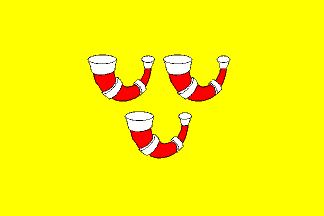
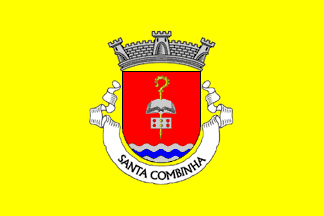
Flag of Martijanec, Croatia;
Flag of Horn, Netherlands;
Flag of Santa Combinha, Portugal
Please note that the use of standard sizes of flag at army posts is by no means limited to the US (although the names may differ), and that the largest size is the one displayed on days of national celebration and/or service significance, or as otherwise regulated (see also battle ensign, ceremonial ensign, holiday colours and Sunday ensign).
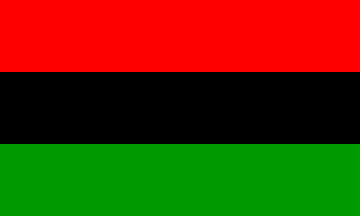
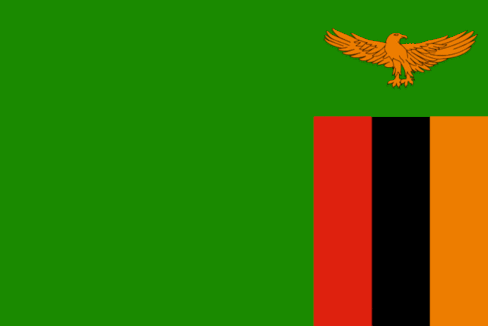
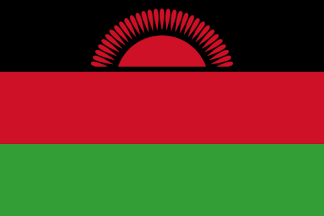
Marcus Garvey’s Flag 1917;
National Flag of Zambia;
National Flag of Malawi
Please note that some sources include these with the pan-African colours as referenced above.
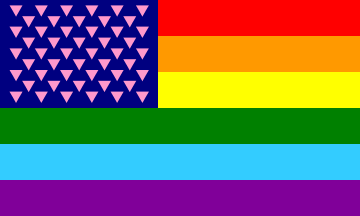
US Gay Pride Flag
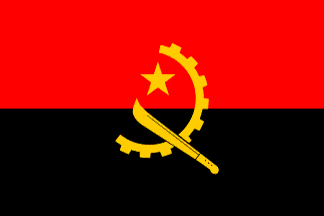
National Flag of Angola
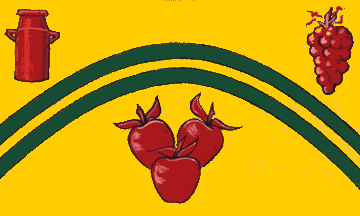
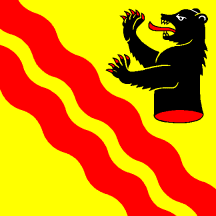
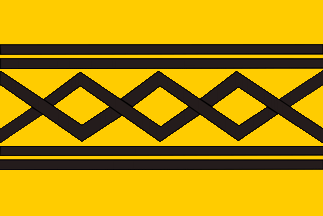
Flag of Frelighsburg, Canada;
Flag of Romoos, Switzerland;
Flag of West Midlands, UK
2) In some systems of European heraldry, the term used to describe when an object (such as an orb crown or mitre) is decorated with jewels – but see garnished.
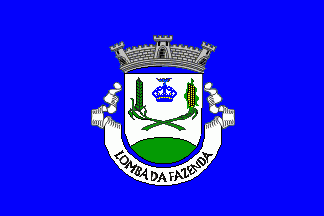
za-pd.gif)
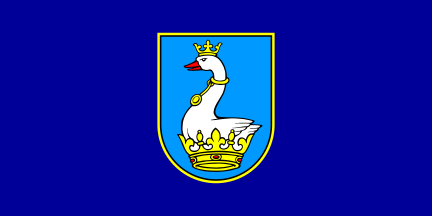
Flag of Lomba da Fazenda, Portugal;
Arms and Flag of Posedarje, Croatia

Flag of the International Red Cross
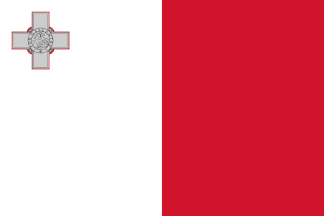
gc.gif)
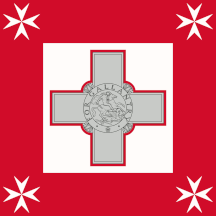
National Flag, enlarged detail and
Naval Jack of Malta
![[Gin Pennant]](../images/v/vxt-d505.gif)
Version of the Gin Pennant, UK (CS)
Please note that the above is usually made on board from whatever materials lie to hand, however, the company Gordon’s Gin are known to have supplied a number of commercially produced gin pennants to yachtsmen in the 1950’s.
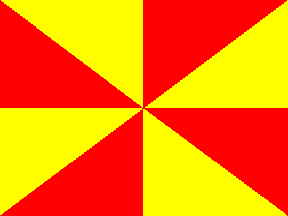
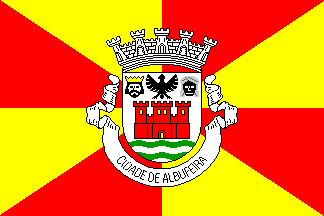
Flag of Warfstermolen, The Netherlands;
Flag of Albufeira, Portugal
Please note that there is no proven connection between these terms and guidon, but that the similarity cannot be ignored.
Introduction | Table of Contents | Index of Terms | Previous Page | Next Page


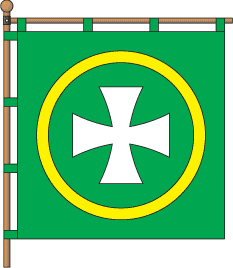
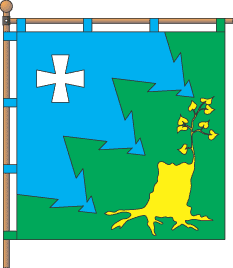
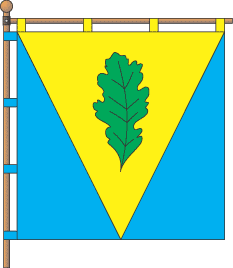

![[gardant]](../images/v/vx-ch-ti057.gif)
![[gardant]](../images/v/vx-ch-gl.gif)
![[commercial Gin Pennant]](../images/v/vxt-d505a.gif)